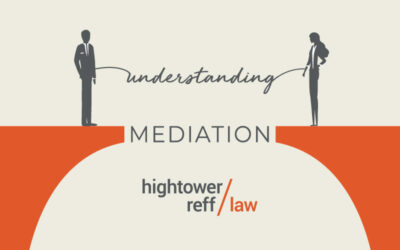According to the Council on Contemporary Families, 70% of couples live together for some period of time before marriage (if they ever get married). A cohabitation agreement is a contract between two people in an intimate relationship sharing a living space. This agreement outlines each person’s rights and responsibilities related to the living arrangement. A cohabitation agreement is similar to a prenuptial agreement before a couple gets married, except marriage is not being considered. Such an agreement can protect your property in the case of a separation.
If you and your partner are not married and are living together, you should consider a cohabitation agreement. When you are living together, rights to property are different from marital property rights with respect to property acquired during the relationship. If your relationship ends (either by breaking up or if one of you dies), there is no court process that will protect your property or spell out who gets what — which is what happens in a divorce. For example, if you have a shared bank account with your partner, without a cohabitation agreement, at the end of the relationship, it may not be clear what will happen with the money. Likely, during your relationship you will accumulate money and other assets between the two of you.
Avoiding Unnecessary Disputes
By executing a cohabitation agreement, each person is clear about who owes what financially and who is going to be responsible for what tasks while you live together. It is common to list each person’s property in order to avoid questions later related to a division of property. The most important part of the cohabitation agreement will outline what will happen with your stuff and money if the relationship ends.
If you and your partner own property as joint tenants, a cohabitation agreement is necessary because it will determine what will happen with that property if the relationship ends, without having to go to court and get a court order to force a transfer or sale of the property. This will help avoid conflict and costs of going to court later if you have everything spelled out. Typically, it is easier to negotiate while you are happy in your relationship and before conflict arises. If you don’t have a cohabitation agreement and you wait until you are in the middle of a breakup, the costs associated with figuring out who gets what can be high.
Protect Your Assets with a Cohabitation Agreement
A cohabitation agreement will also include terms on how to manage your insurance policies, credit card debt and bank accounts. If you incur debt on a credit card that is only in one person’s name, it will be important to provide clarity on how that debt will be divided if the relationship ends. If you buy a house together during the relationship, it is important to include buyout rights in case of a separation, including how you will value the home and determine equity.
Have you considered estate planning for unmarried couples? What about power of attorney for unmarried couples? There are many other ancillary things that should be considered with a cohabitation agreement. Married couples enjoy benefits under state and federal law that protect assets at death. If you are not married, you will need to provide clarity about what you want to happen with your assets after you die or whom you want to make medical decisions on your behalf if you can’t do it yourself.
If you need a cohabitation agreement, contact our office to discuss your unique situation. We will provide clear expectations that should be included in your cohabitation agreement. We will help tailor a cohabitation agreement that suits the needs of both you and your partner.
This article should not be construed as legal advice. Situations are different and it’s impossible to provide legal advice for every situation without knowing the individual facts.




